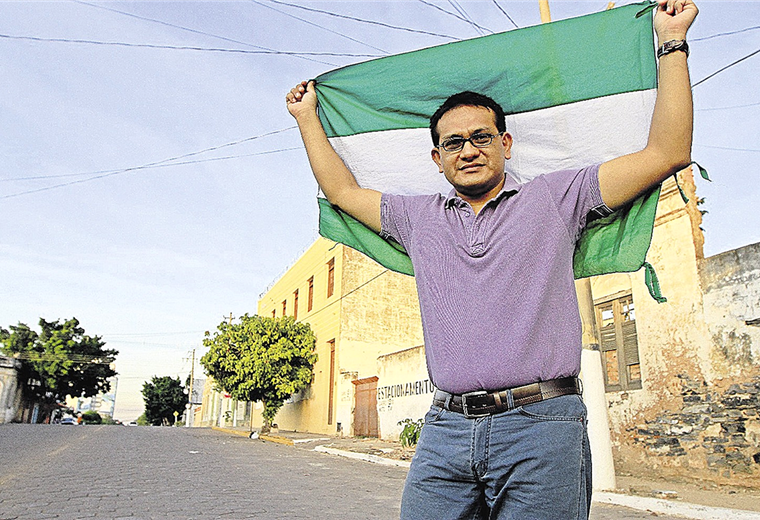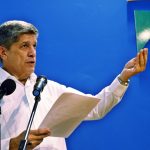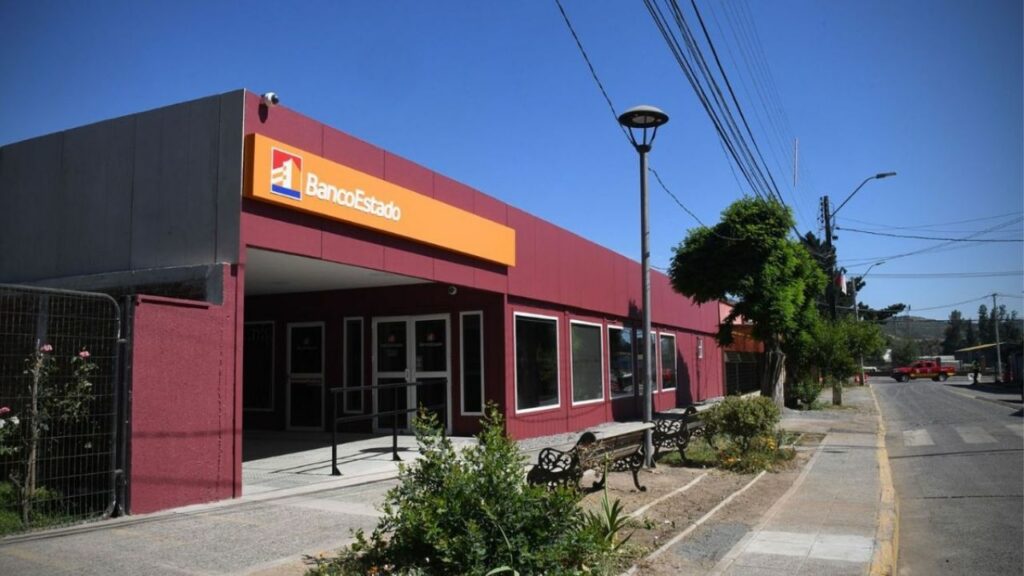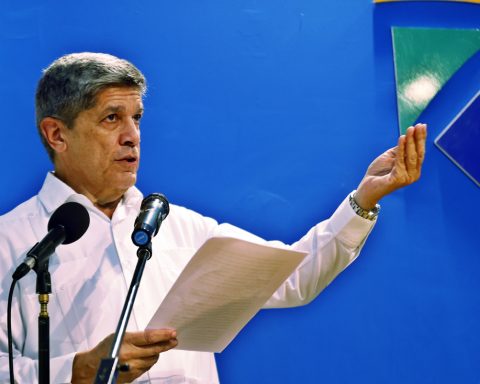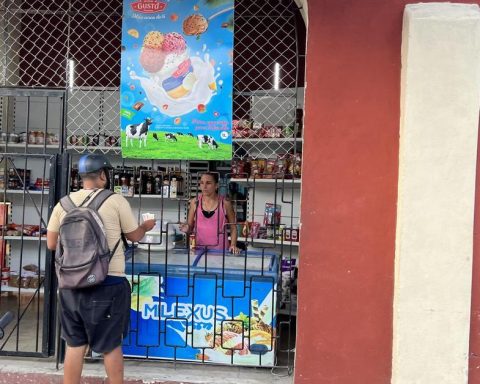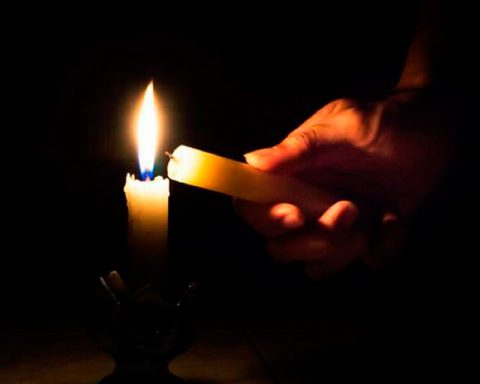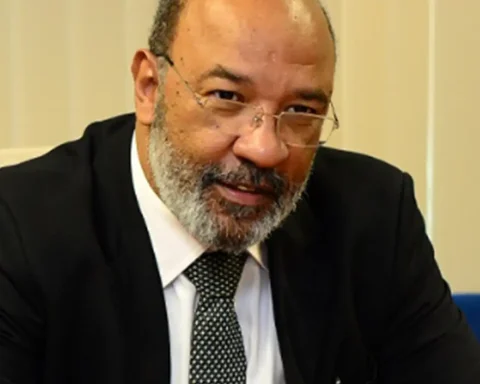April 22, 2024, 4:00 AM
April 22, 2024, 4:00 AM
Four years ago he returned to his native Santa Cruz. Since February 2020, he has been seeking to recover his identity that “mysteriously” was erased after the assault on the hotel The Americas April 2009, when broke out ‘Terrorism’ case, that mobilized state agents to prove the existence of a violent plan to territorially dismember Bolivia.
Alexander Brown He is one of the 39 people accused by the Prosecutor’s Office and the Ministry of Government to be part of that plan. He spoke with EL DEBER and stated that this case, typified by the crimes of armed uprising and assassination against the former president Evo Morales, fragmented his marriage; He said that he did not get to see his two daughters grow up because he was forced to leave the country. To come back, His data were no longer in the Civic Registry Service (Serecí). His health was also impacted. She lost 60% of her hearing in her left ear.
“I do not exist, I am a NN; That even hurt me financially because I can not work in the career I studied. “So many years have passed and I still can’t access my ID card,” Brown said. Who could delete his personal data? The affected person indicates that it was the Government.
He said that he made several procedures with the Serecí and the General General Identification Service (Segip) but until now he has not received a response. Other officials, as he explained, put obstacles in his way or refer him to another entity to gather information. In the Segip they assure that the procedure is personal and that this case is “in process.”
In a transparent folder He has a copy of his identity card saved, but it is from 2004. He also has a blurry membership card of the Santa Cruz Bar Association. Afterwards, she does not have any other document that proves her identity.
“I am a lawyer and I cannot practice this profession. Several companies that I went to looking for work don’t give me one either, even though they know me. I have to do several things to pay expenses, basic services. Companies and “Several friends look at the defendants in the ‘Terrorism’ case as if we were lepers,” he said.
He still does not understand why the previous Government and Marcelo Soza, the prosecutor who handled the case, but who was sentenced for extortion, decided to take his documents during these investigations.
In 2019, but from clandestinity, Alejandro went to the Santa Cruz Committee to ask for help. He said that at that time he continued to receive extortion proposals from “third parties.”
At that time, the commitment of the person who presided over the moral house of the people of Santa Cruz, Rómulo Calvo, was that they would take steps so that “the politically persecuted” would have the guarantee to return to the country, and help them with their respective documentation.
Alejandro Brown went into exile in Brazil on June 19, 2009, after its offices were raided by a group of police officers led by the main investigator at that time, Marcelo Soza. On that occasion, the prosecutor called Brown a “key person” in the case. He said that he was linked to Eduardo Rózsa, the Bolivian citizen who was shot dead by the Police during the assault on the Las Américas hotel.
15 years have passed since that event. Alejandro said he met Rózsa through an uncle with Jewish ancestry. Many years before these events, Brown came to know Rozsá’s father; to his sister and also to his partner, who now lives in England.
“We shared many moments, he met my family. I was even with him the day before he was killed and when I found out that he had been murdered I was perplexed,” the lawyer recalls. He assures that he never knew about the separatist plan that motivated all this.
On April 16 he was at the General Cemetery to visit Rózsa’s grave and leave flowers.
The government of Evo Morales (2006-2019) accused this citizen of leading a paramilitary group to separate the country. After the operation at the Las Américas hotel, photos were released in which Rózsa appears with firearms. With a Jewish father, he participated in the Balkan War (1991-2001) that sealed the separation of Yugoslavia. The man fought for Croatia.
Eduardo Rózsa was part of or starred in several films which were produced in Hungarian. The best known is ‘Chico’ (2001). That is the facet of “soldier behind the screen” that his relatives in Santa Cruz remember. When he was executed by the Police he was with four other foreign citizens who were also accused of being separatists. The investigation did not clarify the Government’s accusations, although several pleaded guilty to close this legal process.
Brown had to use his savings to leave the country. He lived in Corumbá, Epitaciolândia and Cuiabá. In Brazil he had to sleep under the bed for 11 months for fear that the Police would break into his bedroom and he would be transferred to Bolivia. The state of anxiety caused damage to his hearing, he says.
He said that where he was he helped several “persecuted” people. who left the country. “Even Masistas asked me for help,” Brown recalled.
As a result of the years in exile, he had to participate in the wedding of one of his daughters through Skype.
Lawyer Gary Prado who advised several of those detained in this case, considers that “in general terms” the fact that Alejandro Brown continues without documents confirms a serious violation of human rights. “Specifically, it is a sequel to the years of exile that Alexander suffered. and the cruelty that lawyers from Evo’s government had towards Alejandro.”
The jurist highlighted that the current government of Luis Arce is faced with the challenge of repairing this damage and the others that occurred as a result of actions by state agents.
But, unlike the majority of those accused of ‘Terrorism’, Alejandro Brown has not yet attended the Inter-American Commission on Human Rights (IACHR), but also hopes that the cases that are ongoing will be resolved.
“It shouldn’t stop there, for many years they persecuted us without having any proof. “All those who operated at the Las Américas hotel must be prosecuted,” he stated.
In the last five years, the IACHR admitted seven cases for the assault on the Las Américas hotel, one of them, the one promoted by the family of the Irishman Michael Dwyer, one of the three executed in 2009, made it into the “merit report”, the document who considered that 15 years ago There were “extrajudicial executions” and “torture.”
The Attorney General’s Office asked the IACHR to “group” these cases to be able to respond “comprehensively” before going to an international trial.
DATA
RELEASED ON JUNE 19, 2009
The raid on his office was decisive for leaving the country. The only thing he could save was laptop.
ACCUSES SOSA OF EXTORTION
Brown points out that while he was in Brazil, the former prosecutor suggested extortion to his wife, so that he would not be prosecuted.
STATE MUST REPAIR
Lawyer Gary Prado argued that Luis Arce’s government must immediately repair the injustice committed towards Brown’s human rights.
